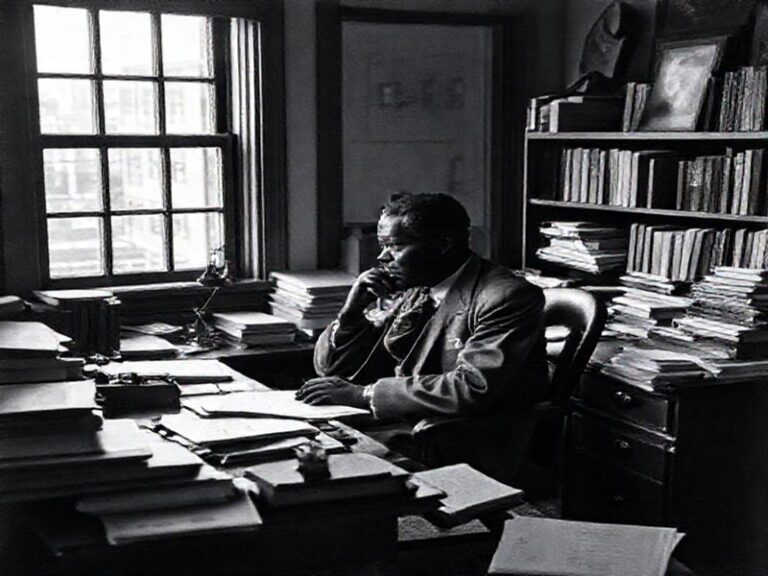Russell M. Nelson: The 100-Year-Old CEO of a Global Empire Hidden in Plain Sight
RUSSELL M. NELSON: THE QUIETLY GLOBAL OCTOGENARIAN WHO RUNS A CHURCH THE SIZE OF SWEDEN
By the time most men are swapping their briefcases for orthopedic shoes, Russell M. Nelson—current prophet, seer, and revelator of the Church of Jesus Christ of Latter-day Saints—was circumnavigating the globe like a caffeinated Magellan with a medical degree. At 100, he has logged more air miles than your favorite low-cost airline and still manages to look as if he just stepped out of a celestial boardroom where the dress code is “warm but authoritative.” The joke circulating in diplomatic circles is that if Air Force One and the Popemobile ever collided, Nelson would be the first on the scene, intubate both pilots, and still make it to the next temple dedication before customs cleared his hand sanitizer.
From a purely demographic standpoint, President Nelson oversees an outfit that boasts 17 million members on paper—roughly the population of the Netherlands plus a modest suburb of Lagos. Yet the real intrigue is not the headcount but the geography: more Mormons now live outside the United States than inside it, a fact that makes the church less a Utah curiosity and more a multinational enterprise with a sideline in genealogy. In Ghana, new temples rise faster than Accra’s traffic lights; in the Philippines, Mormon chapels outnumber Jollibee franchises in at least three provinces. Nelson’s weekly video messages—delivered in clipped, surgeon-grade diction—are simultaneously translated into 95 languages, which means that somewhere in Papua New Guinea, a teenager is learning the Word of Wisdom in Tok Pisin while wondering why Coca-Cola is still technically allowed.
The international press corps, perennially allergic to anything that smells like organized religion, has begun to notice that Nelson’s itineraries read like a Davos after-party guest list: Manila, Nairobi, São Paulo, London. He blesses babies in Bangalore, dedicates temples in Rome (yes, that Rome), and still finds time to remind German members that caffeine-free coffee is an oxymoron. Diplomats whisper that his private meetings with heads of state have less to do with theology and more to do with disaster relief contracts, microfinance initiatives, and the discreet channeling of remittances through a financial labyrinth so opaque it could make a Swiss banker blush.
Of course, every empire has its PR hiccups. When Nelson reversed the 2015 policy baptizing children of same-sex couples, the global reaction was a collective shrug in Scandinavia, jubilation in São Paulo, and sheer confusion in Provo, where some members assumed the announcement was an elaborate deepfake. Meanwhile, in Russia, missionaries now proselytize under the legal designation of “foreign agents,” a term so Soviet-chic that even Tolstoy might have laughed into his beard. Nelson’s response? A gentle reminder that persecution builds character—and, incidentally, tithes—though he phrased it in that soothing cardiac-surgeon cadence that makes you feel grateful for your impending bypass.
The broader significance here transcends theology. In an era when the post-war liberal order looks like a garage-sale Fabergé egg, institutions that can still move millions of dollars, volunteers, and ideological narratives across borders without triggering a UN resolution are worth studying. Whether you regard Nelson as God’s mouthpiece or simply the most well-traveled centenarian since the Queen started waving from balconies, he is running the last quasi-imperial organization that still believes in borders only so far as they need to be crossed.
And so, as the world lurches from supply-chain crisis to geopolitical flame-war, Russell M. Nelson glides through international terminals with the serene detachment of a man who has already seen the other side—both literally (open-heart surgery) and figuratively (the celestial kingdom). He leaves behind temples gleaming like marble Wi-Fi routers connecting the living to the dead, and a trail of bewildered customs officials asking, “Sir, what exactly do you mean by 300,000 names on a flash drive?” The answer, delivered with the faintest of smiles, is simply: genealogy, darling. Welcome to the cloud that predates the cloud.







